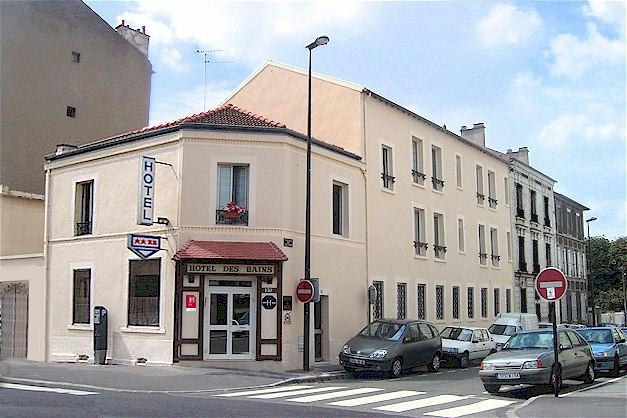Étiquette : CNRS
Putting nature at the heart of society to fight climate change
More than a million animal and plant species are today threatened with extinction worldwide. To make things worse, this biodiversity loss is now being irremediably accelerated by climate change. The researcher Ignacio Palomo points out that nature can …
Europe set to fight cancer
The European Union aims to reduce by 3 million the number of deaths from cancer on the continent between now and 2030. As France took over the EU presidency on 1 January 2022, we review the situation with Yvan De Launoit, deputy scientific director in …
Europe set to fight cancer
The European Union aims to reduce by 3 million the number of deaths from cancer on the continent between now and 2030. As France took over the EU presidency on 1 January 2022, we review the situation with Yvan De Launoit, deputy scientific director in …
The unforeseen acceptance of deepfakes
Rapid improvements in deepfake technology, which modifies a person’s appearance or voice in real time, call for an ethical review at this still early stage. Researchers in cognitive science shed some light on the public’s perception of this phenomenon….
Art and archaeology are the new frontiers for AI
Algorithms are increasingly reliable for identifying the content of images, but so far have not been able to evaluate their aesthetic or emotional value. A new horizon that artificial intelligence is now beginning to explore.
Artificial genomes offer a promising lead
This is research that has not gone unnoticed: scientists have created extremely realistic artificial genomes as a result of their work on artificial neural networks. Flora Jay, who coordinated these efforts, explains.
Covid-19: What have we learned from the pandemic?
From the Neolithic period to modern times, from cattle plague to SARS-CoV-2, the emergence of new infectious diseases has often been the result of changes that mankind has inflicted on the environment. This documentary shows how biologists, anthropolog…
Oxytocin, from love potion to medicine
Oxytocin appears to be involved in several types of attachment, including love. Marcel Hibert explains its chemical and biological mechanisms and the therapeutic hopes it inspires, notably in the treatment of autism.
Sea monsters at the time of the dinosaurs
Over 60 million years ago, superpredators such as ichthyosaurs, plesiosaurs and mosasaurs roamed the seas. But what exactly were these reptiles, which are often incorrectly referred to as “marine dinosaurs”? CNRS News asked three of the authors of “La …
Urban birds, stressed birds
Birds are an increasingly rare sight in our cities. In this report, researchers from the Centre for Biological Studies of Chizé (CEBC) investigate the problems – noise, light, lack of food – that affect various species of birds in urban areas, and seek…
Data storage: the DNA revolution
Two seminal revolutionary declarations, now stored and encapsulated in DNA, are joining the French national archives (Archives nationales). Behind this project is the DNA Drive technology developed by the researchers Stéphane Lemaire and Pierre Crozet.
SPIRAL2, the atom factory
In the French city of Caen, GANIL’s new heavy ion accelerator, SPIRAL2, has completed commissioning. The custom-built linear accelerator is even more powerful than its predecessor and will pave the way for the exploration, with unparalleled precision, …
Writers know no frontiers
With more than 500 documents from archives around the globe, a new collective volume translated into eight languages traces the history of PEN International, the largest worldwide writers’ organisation, which is celebrating its centennial this year.
Ransomware: research strikes back
All it takes is one click for your computer to be taken hostage by a malware program that will relinquish control only for a ransom. Upon the launch of Cybermallix, a CNRS joint laboratory with the software publisher Wallix, Jean-Yves Marion, director …
Sea urchins under threat
Over the past few years, populations of purple sea urchins off the coasts of France have been declining. In Corsica, researchers at the Stella Mare lab, headed by Antoine Aiello, winner of the CNRS 2021 innovation medal, are taking action by monitoring…
Natural radioactivity sustains unsuspected subsurface life
At the bottom of mines or beneath the ocean floor, drillings reveal the presence of vast communities of microorganisms in the subsurface of our planet. Scientists believe this could be due to natural radioactivity in rocks, which may offset the lack of…
Athénan, a multi-champion AI
Close-up on a French system that won the jackpot at the recent 24th Computer Olympiad, a global multi-game competition for artificial intelligence.
Do algorithms keep playing the same old song?
What is the impact of algorithmic recommendations on the diversity of the music being streamed? Using data made available by Deezer, the researchers of the Records project have formulated an initial detailed view of the question.
How imaging is revolutionising biology
For the launch of the Year of Biology, the neurobiologist Daniel Choquet explains how progress in imaging has contributed to the current explosion of knowledge in the life sciences.
A new window into the Bronze Age discovered in central France
A team of archaeologists from the TRACES laboratory, in southwestern France, carrying out excavations in the Allier department (central France) has made a discovery dating back to more than 2,800 years ago. They have uncovered several exceptional depos…
MAGIC explores the polar skies
Last August, the scientists taking part in the fourth MAGIC campaign headed for Scandinavia, north of the Arctic Circle. Their goal was to study the atmospheric distribution of greenhouse gases using ground-based instruments, balloons and research airc…
“Proust’s political and literary activities are indissociable”
Everyone is familiar with the author, but Marcel Proust also championed a number of political ideas, some of which are still in the public arena today. To mark the anniversaries of his winning the Goncourt Prize in French literature in 1919 and his dea…
How light governs sleep
At the Hospices Civils general hospital in Strasbourg (northeastern France), the researchers of the International Research Center for ChronoSomnology (CIRCSom) want to know how well we sleep and why. Their research focuses in particular on the role of …
The soil underfoot we take for granted
What contains 25% of the Earth’s known biodiversity and 75% of its terrestrial biomass, provides its natural fertility, and regulates its watercourses as well as the climate? No need to look very far, it’s right under your feet: the soil! The biologist…
Memorising the passing of time
A team from the CNRS, working in partnership with scientists from The Netherlands, has managed to identify neurons that can encode the passing of time. An important advance in our understanding of so-called episodic memory.
The new frontiers of the living world
With the discovery of DNA and the spectacular progress of imaging in the twentieth century, it was assumed that biology had already accomplished its revolution. Quite the opposite, says Catherine Jessus, former director of the CNRS’s Institute of Biolo…
The blob creeps into the homes of the French
As a week of experiments begins in 5,000 schools in connection with this strange unicellular organism, the biologist Audrey Dussutour is looking for 10,000 volunteers for her next participatory science experiment. The goal is to understand how global w…
The James Webb Space Telescope is set to explore the early Universe
After a series of delays, the James Webb Space Telescope is at last scheduled for launch on 18 December. Its instruments have been designed to observe the most distant objects in the Universe.
How are oceans born?
The oceans have not always looked the same as they do today. Their shape and size keep changing over the course of geological time. There are even places on Earth where they are still in the making. This raises the question of where and how oceans form…
Fascinating scientific shots
Discover the laureates of the new edition of the LPPI “Proof in Images” competition, organised by the CNRS and the ACFAS, its Canadian partner in Quebec. View these twenty fascinating submissions originating from ambitious research and vote online to s…
Personalised breast reconstruction
For women who have undergone a mastectomy after breast cancer, the start-up firm Healshape has developed a 3D bioprinted breast implant that can be adapted to all body shapes. The aim is to reconstruct the entire breast using cells from the patient.
Ruins tell the tale of human societies
The archaeologist Alain Schnapp is a specialist in ancient Greece and a keen defender of the world’s archaeological heritage. Author of the book, « A Universal History of Ruins, » he shares his thoughts on how human societies relate to their own past.
Boosting space propulsion
Higher-performance, lighter, cleaner… Scientists are using every possible means to improve the systems that allow rockets, shuttles, and satellites to take off from Earth and move about in space.
Mars: Jezero crater really was a lake
The first published data from the Perseverance rover shows that there was a large, deep lake on Mars 3.6 billion years ago, and that it was swept away by a climate upheaval.
Sports science in all fields
The presence of scientists within elite training squads has become increasingly commonplace. Among other things, they study pedal strokes in cycling, muscle exertion in running, and decision-making processes in basketball. Discover some of the images h…
Numbers that shape the world
The study of numbers has driven mathematics since antiquity. The constantly evolving field of arithmetic connects numbers and geometry, and is used in everyday applications, particularly in cryptography.








